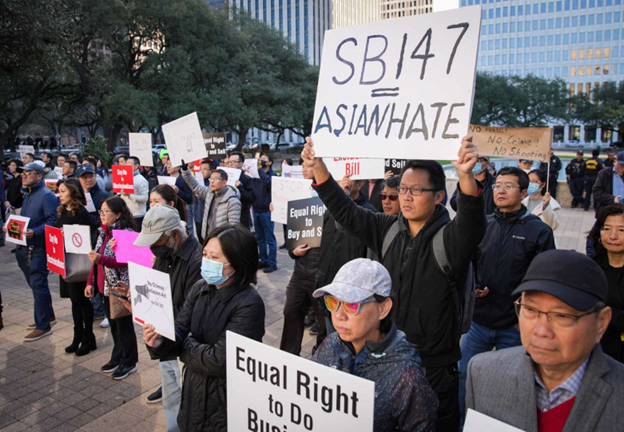By Angelina Tang
Senate Bill 147, proposed by Texas senator Lois Kolkhorst, attempted to ban citizens from China, Iran, North Korea, and Russia from owning property in the state. The senate committee stated that it was unconstitutional and racist, but Kolkhorst has refused to back down, adjusting the bill on March 2nd to exclude dual citizens and green card holders from the restriction. In addition, she has stated that further “concessions” may be on the table if it means the bill can be passed.
SB147 intends to prevent companies from these countries, chosen in particular according to a federal national intelligence threat assessment, from purchasing infrastructure in the U.S.; Concerns over this have been in the air since early 2021, when a Chinese company purchased 130,000 acres of land near the Laughlin Air Force Base in Texas’s Val Verde county. U.S. representatives feared possible cyberattacks that would allow China to turn off the electrical grid and thus cause damage to infrastructure at a state-wide level.
Since the bill’s initial proposal, Kolkhorst has been softening it after over 100 people spoke out against it during a hearing, most of which were Asian Americans. She has allegedly stated that she intends for individuals to still be able to purchase homes as she amends the bill, granted they declare their purpose and citizenship. However, the damage has already been done–the suggested legislation has been criticized by many for being discriminatory and, in particular, targeting Chinese citizens. Other bills aimed at Chinese citizens, businesses, and products–most notoriously TikTok–have also been recently filed for consideration in the Senate and House of Representatives, making SB147 just one more addition to a growing concern.
If this bill were put into action, then it would essentially legalize anti-Asian American discrimination in the state of Texas, setting both a frightening precedent for other states and a dark continuation of historical anti-Asian legislation in the U.S., from the Chinese Exclusion Act of 1892 to the California Alien Land Law of 1913 to Japanese internment camps during WWII. No matter what Kolkhorst says, the bill would inevitably affect all Chinese citizens, forcing them to prove their citizenship and intent when purchasing a home; it would also contribute to the recent surge of anti-Asian sentiment produced by the pandemic. Fortunately, due to widespread opposition, we can count on this legislation being far from passable, but it casts the beginnings of a cloud of uncertainty over the coming years for minority groups–notably Asian Americans–in the United States.

